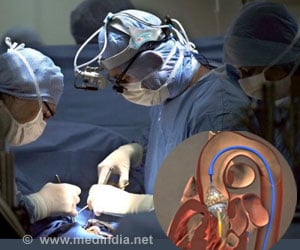Students in the southern Indian state of Tamil Nadu are shying away of undergraduate medical courses as they find prospects in the IT sector more alluring.
Students in the southern Indian state of Tamil Nadu are shying away of undergraduate medical courses as they find prospects in the IT sector more alluring.
Corporate hospitals may be earning lakhs of rupees daily and beds may be overflowing with patients but some of the best brains in this country are running away from medical colleges.This is the fallout that the boom in the Information Technology sector is having on young minds now. According to Tamil Nadu Engineering Admissions Secretary Rhymend Uthariaraj, this year a record 90 boys and girls who had secured admission into the best medical colleges in the State have opted out in favour of engineering courses.
Most of them have joined the popular Electronics and Communications Engineering and Information Technology courses in leading colleges.
“This was waiting to happen,” says professor V Idichandy, Dean (Students), Indian Institute of Technology (IIT Madras). The choice of the students has been largely influenced by the six-figure salaries that IT majors and MNCs like Google, Wipro, Infosys, Lehman Brothers and Microsoft are offering undergraduate engineering college students who have just passed their third year course.
Admitting that the students are getting carried away by the job windfall in the engineering branches, Dr Muruganathan, Member, Medical Council of India (MCI), says there are also other reasons for this. “The expenses involved in obtaining a MBBS degree are far higher than what you spend for engineering courses. These days in medical stream, after completing MBBS, a student has to undergo a post-graduate programme and top it up with a super-specialty course. All this takes eight years, whereas as an engineering student you get the job while in the final year of study,” he explains.
Add to this, the investment that a doctor needs to set up a clinic. “If you get an appointment in the Government Hospital, you get paid just Rs 15,000. For that, you need to appear for the Tamil Nadu Public Services Commission and complete a whole lot of formalities,” Dr Muruganathan elaborates. Besides, there is no assured income when doctors take up private practice.
Advertisement
Does that mean that medical will lose sheen in the future. “Not really,” says Dr Muruganathan. “Students who want to take up medicine as a career will continue to do so without being calculative about the monetary benefits,” he says with a sense of optimism.
Source-Medindia
SRM/B





